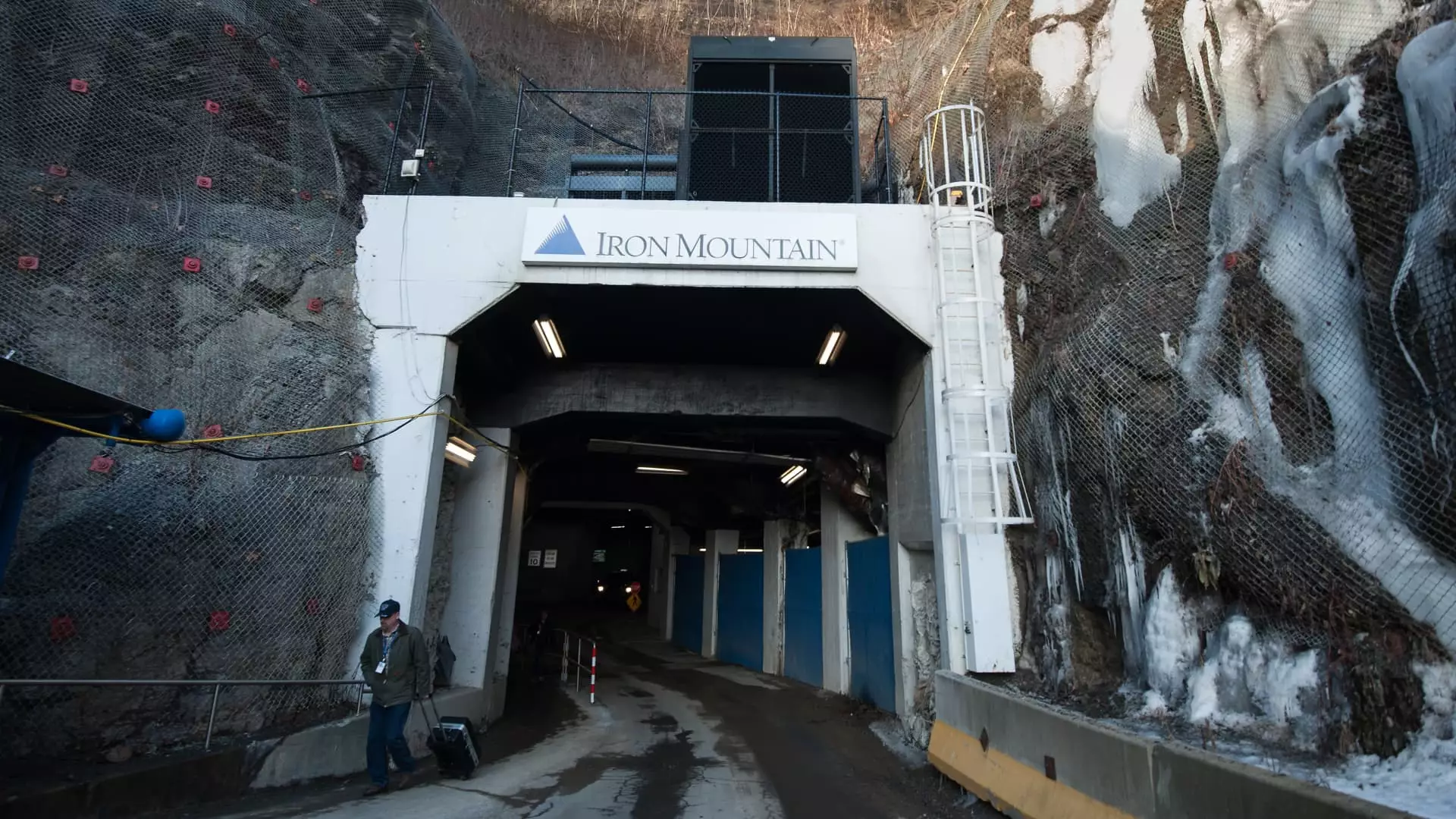In an unexpected turn of events earlier this week, Elon Musk, the influential entrepreneur and CEO of several groundbreaking companies, took to the Oval Office to address an often-overlooked issue—government inefficiency, specifically in regards to federal retirement paperwork. Standing alongside President Donald Trump, Musk launched into a captivating tirade about a limestone mine where he claimed the government stores vast amounts of aging documents, characterizing it as a relic of the past. By invoking the image of a facility seemingly trapped in time since its inception in 1955, Musk effectively laid bare the absurdities of the current bureaucratic system.
Musk painted a vivid picture of an antiquated operation, stating that the mine—run by a relatively obscure company called Iron Mountain—demonstrates the slow, cumbersome processes that plague federal operations. He highlighted how the elevator speed at this facility directly affects the efficiency of retirement processing for federal employees, questioning the logic behind such outdated methods. This anecdote served not only to provoke a reaction from those in the room but also to resonate with the public’s growing frustration over the inefficiencies of government operations, particularly during a time when technological advancements abound.
This mine is not just an obscure detail; it’s a lens through which the public can examine the overarching systemic issues plaguing federal agencies tasked with critical functions. By referring to the mine as a “time warp,” Musk was not merely making an amusing observation but rather pointing out a profound stagnation that hinders the workings of the U.S. government.
Iron Mountain’s CEO, Bill Meaney, has since responded to Musk’s remarks, framing the government efficiency initiative as a promising growth opportunity for his company. Currently, Iron Mountain collects a meager $10 million from the federal government for document storage, dwarfed by the $130 million it earns through other ventures, such as digitization services. Meaney described this disparity as evidence of a broader opportunity for innovation within government agencies. Such framing indicates that while Musk’s commentary may have rattled stock prices temporarily, it has also opened the door for a conversation about modernization.
Through a keen focus on digital transformation, companies like Iron Mountain can potentially reshape how government entities operate. It’s important to recognize that the inefficiencies pinpointed by Musk do not just exist in isolation; they reflect a systemic reluctance to innovate within federal operations. Meaney’s assertions underline a crucial nexus between public sector functionality and private industry growth, highlighting how partnerships can lead to positive change.
Wall Street’s reaction to Musk’s statements, particularly concerning Iron Mountain, demonstrates the complexities of investor sentiment. Following Musk’s remarks, the company’s stock took a significant hit, declining over 10% in one week alone. However, analysts, including those from Wells Fargo, deemed the market reaction exaggerated. They argued that Iron Mountain’s revenue sources are diversified enough to weather potential losses from government contracts, emphasizing that any move to terminate agreements would likely incur termination fees. These insights indicate a fundamental misalignment in how market dynamics respond to celebrity-driven commentary versus genuine business fundamentals.
Barclays analyst Brendan Lynch echoed these sentiments, suggesting that despite the chaos triggered by Musk’s comments, the legal requirements for federal record-keeping might reinforce Iron Mountain’s relevance in the future. Such analysis offers a crucial counterpoint to Musk’s provocative statements, reminding stakeholders of the broader implications of bureaucratic necessities.
Elon Musk’s critique of the current state of governmental document management shines a light on much-needed reform within federal agencies. The conversation sparked by his remarks not only prompts a re-evaluation of antiquated systems like the limestone mine but also emphasizes the opportunities for digital transformation in federal operations through partnerships with private industry.
As government agencies grapple with inefficiency in an increasingly technology-driven world, the remarks made by Musk serve as a wake-up call, urging leaders to prioritize modernization over tradition. While the implications for companies like Iron Mountain remain to be fully seen, the dialogue ignited by this moment encourages a collective vision towards a more efficient and responsive government that can meet the needs of its citizens.
Musk’s critique may have caused a temporary stir, but if it reignites a broader commitment to innovation within federal operations, it could mark an important pivot towards a future where government efficiency is no longer a distant dream but a tangible reality.


Leave a Reply